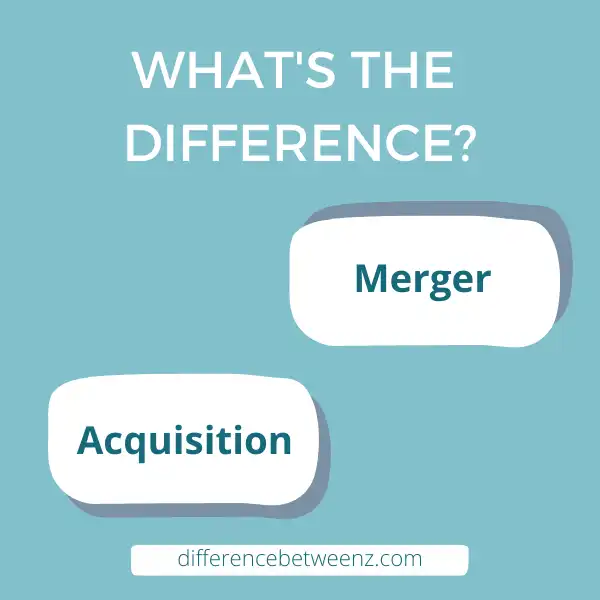There is a lot of confusion surrounding the difference between a merger and an acquisition. In this blog post, we will explore the key differences between the two, and provide some examples. We hope that this information will help you to better understand these business terms.
What is Merger?
A merger is the absorption of one company by another. The merging of two companies generally results in the creation of a new company, although the assets and freshness of both organizations may be retained.
- In most cases, a merger occurs when two companies share common interests and agree to cooperate in order to better compete in their respective markets.
- A merger may also be advised by financial analysts as a way to create shareholder value. Depending on the circumstances, a merger may be structured as an acquisition, in which one company purchases another, or as a consolidation, in which two companies combine to form a new entity.
- In either case, the goal is typically to achieve economies of scale, expand market share, or access new markets. A key consideration in any merger is whether the combined company will be able to realize these benefits. Financial analyses and due diligence are typically performed to assess this likelihood before a merger is completed.
If successful, a merger can create value for shareholders, employees, and customers alike. However, if poorly executed, a merger can destroy value and lead to serious problems for all involved. As such, careful planning and execution are essential to ensure that a merger is successful.
What is Acquisition?
- Acquisition is an important part of any company’s strategy. It involves a process of researching potential targets, negotiating terms and conditions, signing contracts and closing deals to the satisfaction of all parties involved.
- For companies looking to expand their operations or make strategic purchases, acquisition can be an effective way of achieving set goals. Acquisition is typically done after a thorough analysis to ensure that the target company brings complementary assets, technologies, capabilities and products into the equation.
- The expected returns — whether it’s in terms of cost savings, synergies or greater market share — need to be solidly in place before any Acquisition process begins. This is why companies are usually guided by experienced professionals in Acquisition matters when making such decisions.
Difference between Merger and Acquisition
Mergers and Acquisitions (M&A) are both strategic decisions that can be taken by companies in order to grow their businesses. However, there are some key differences between the two.
- A merger is an agreement between two companies to combine their operations and create a new entity, while an acquisition is when one company takes over another company and establishes itself as the new owner.
- In a merger, both companies are usually of similar size and share common business goals. An acquisition, on the other hand, typically occurs when one company is much larger than the other and is looking to expand its market share or product range.
- In terms of implementation, a merger is typically a more complex process because it involves the merging of two businesses, while an acquisition is usually simpler as it only requires one company to take over another.
Finally, it is worth noting that not all M&A deals are successful – often, they can lead to job losses and cost cuts as the companies look to rationalize their operations.
Conclusion
Mergers and acquisitions can be complex, but our guide breaks down the basics of each. In short, a merger is when two companies join forces to become one company, while an acquisition is when one company buys another company.


